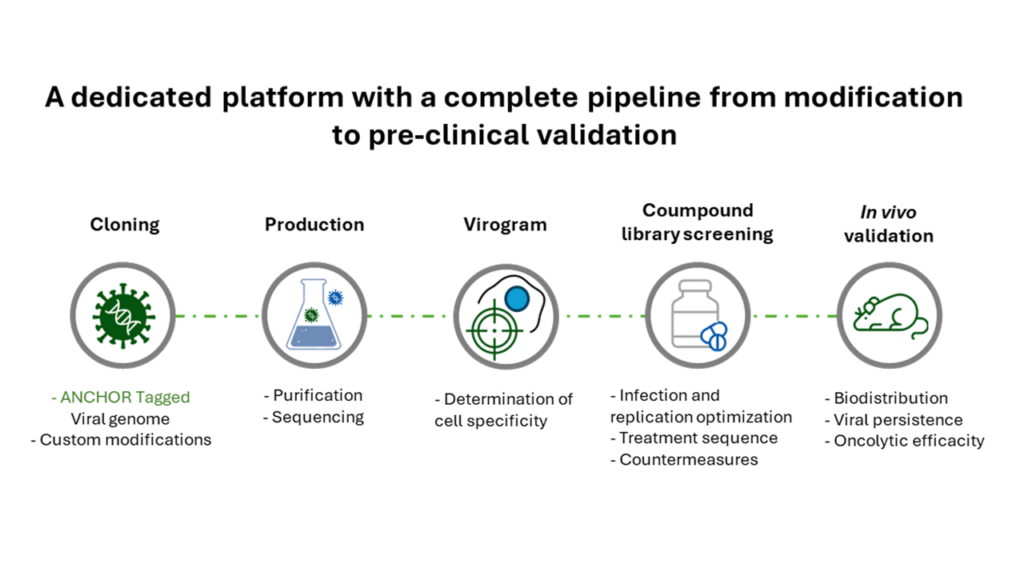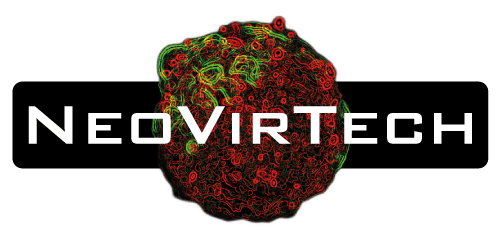Virus as a cancer therapy
Oncology
Oncolytics vectors
Conventional cancer treatments have limited effectiveness in many cases. Oncolytic therapy, based on the use of armed viruses directed against tumor cells, offers new perspectives in the fight against this global scourge.
In this context, our ANCHOR™ system allows the visualization of the early stages of infection down to the single cell level and the rapid quantification of viral replication. This real-time monitoring will accelerate the understanding and development of this new anti-cancer therapy and identify activator or inhibitor of your oncolytic product.

Construction of autofluorescent oncolytic vectors
Our experience in virus modification and the speed of implementation of our system can be a real asset to your product development. The real-time visualization of the virus particles allows a rapid response to many of the problems encountered in the development of oncolytic viruses. The ANCHOR technology allows the assessment of oncolytic potential without fixation, extraction or staining.
Cell line efficiency and in vivo testing
One of the main limitations of oncolytic therapies remains the permeability of cells to viruses. Many factors influence permissiveness, such as the cell type or the target organ. Also, information about the infection capacities and replication level depending on cell types can be difficult to assess. We can test a specific oncolytic product on different cell lines and test for their infection and replication capacity according to cell origin, multiplicity of infection or presence of a compound of interest. We can also propose to test the activity of oncolytic viruses on specific mouse models.
Drug discovery, oncolytic modulators
Using autofluorescent oncolytic viruses, we can measure the impact of the presence of a molecule of interest on virus infection and replication capacities. Molecules can be from different origin such as small molecules, antibodies, siRNA. This offer will help you discover the mechanistic and biological pathways behind oncolytic activities. The oncolytic activity can be modulated by activating the oncolytic potential on specific cell lines or inhibiting targeted replication.
Interaction with pre-existing treatments
The use of anti-cancer therapies is often performed in combinations for a better anti-tumor effect. We can study for you the impact of classical anti-cancer drugs combined with your oncolytic virus. The objective is to increase efficacy by detecting synergistic combination and avoid antagonism by preventing association of molecules that will impair viral infection or replication.


Pr. Pierre Cordelier
Dr. Philippe Erbs